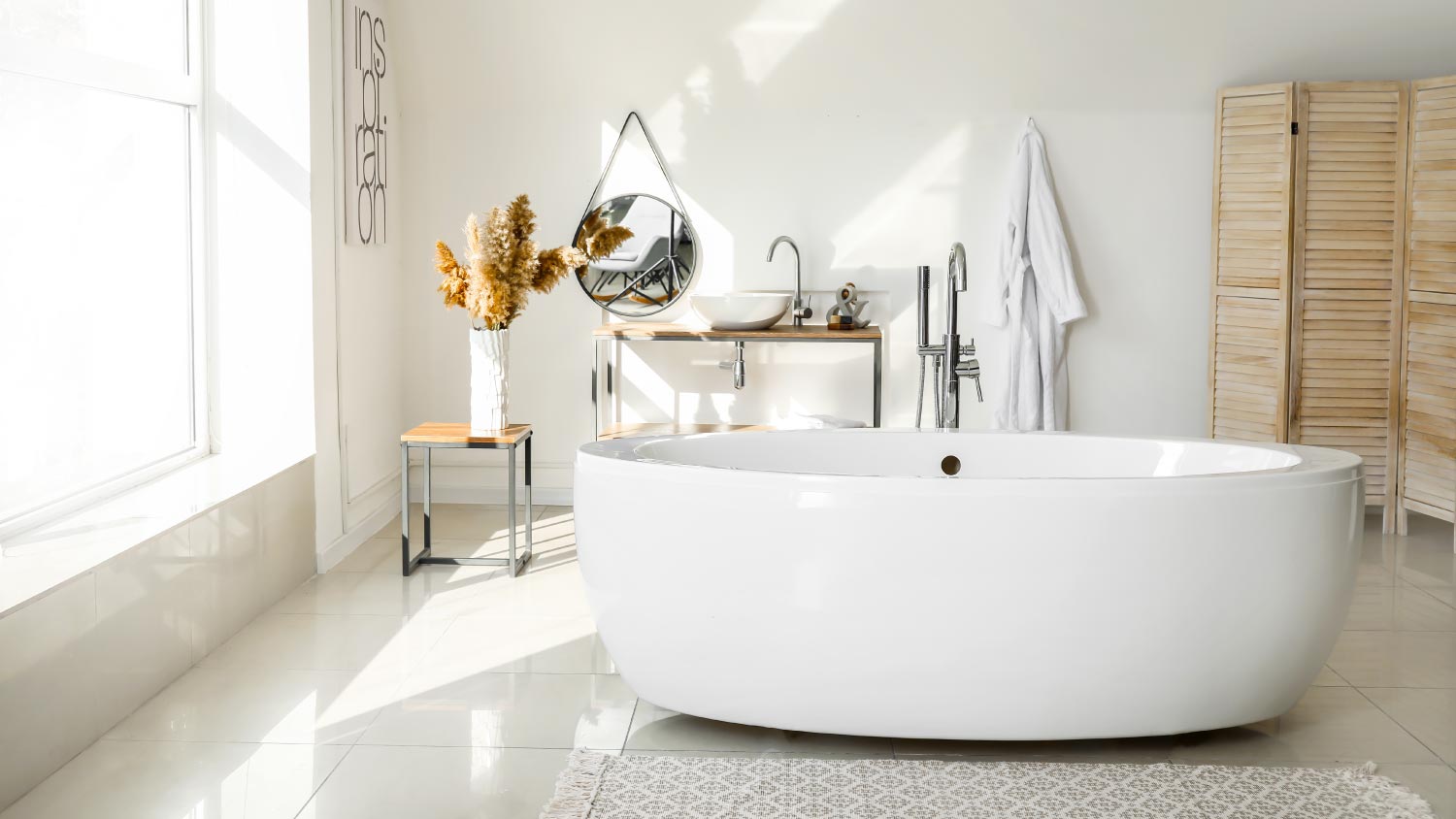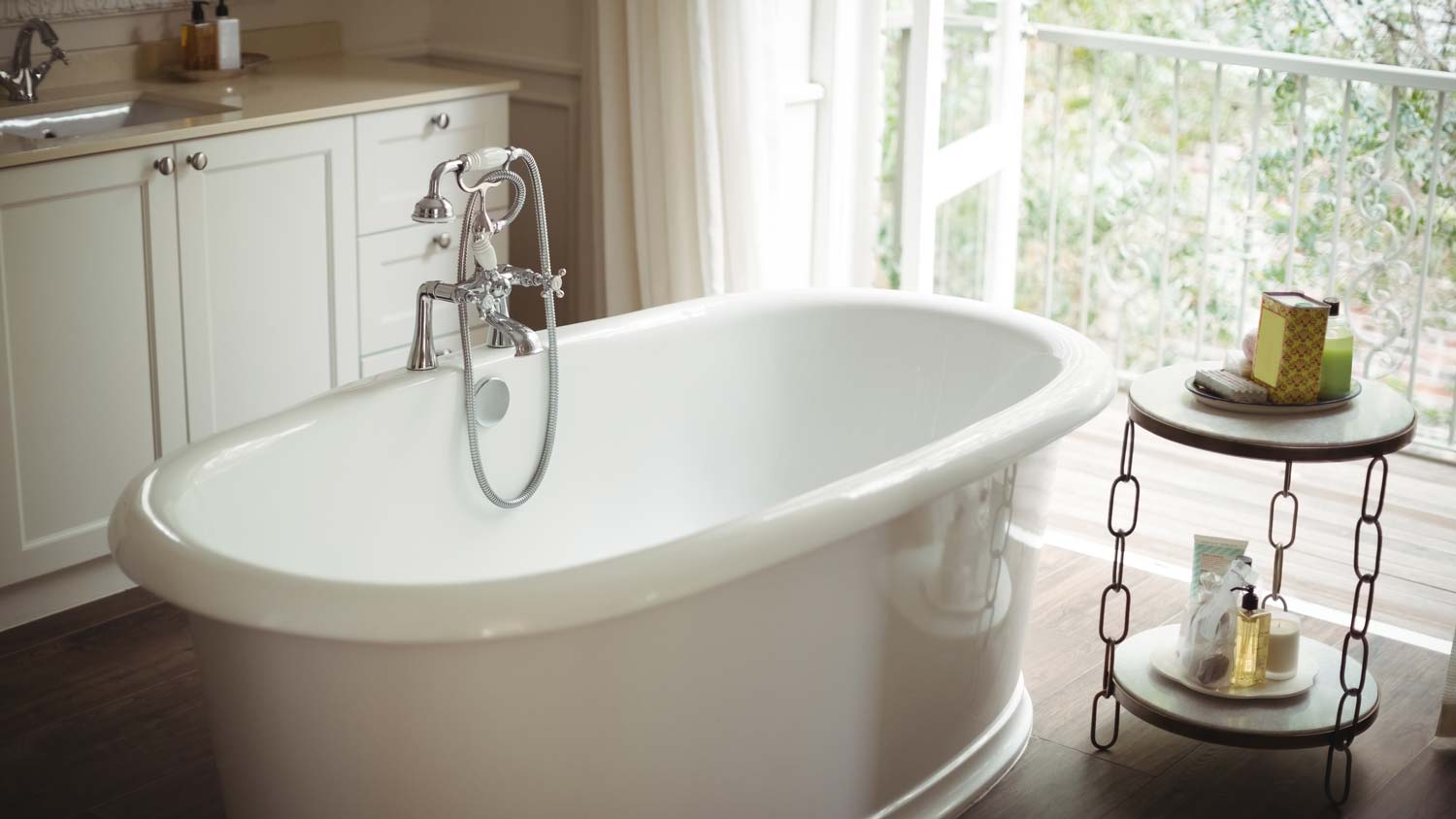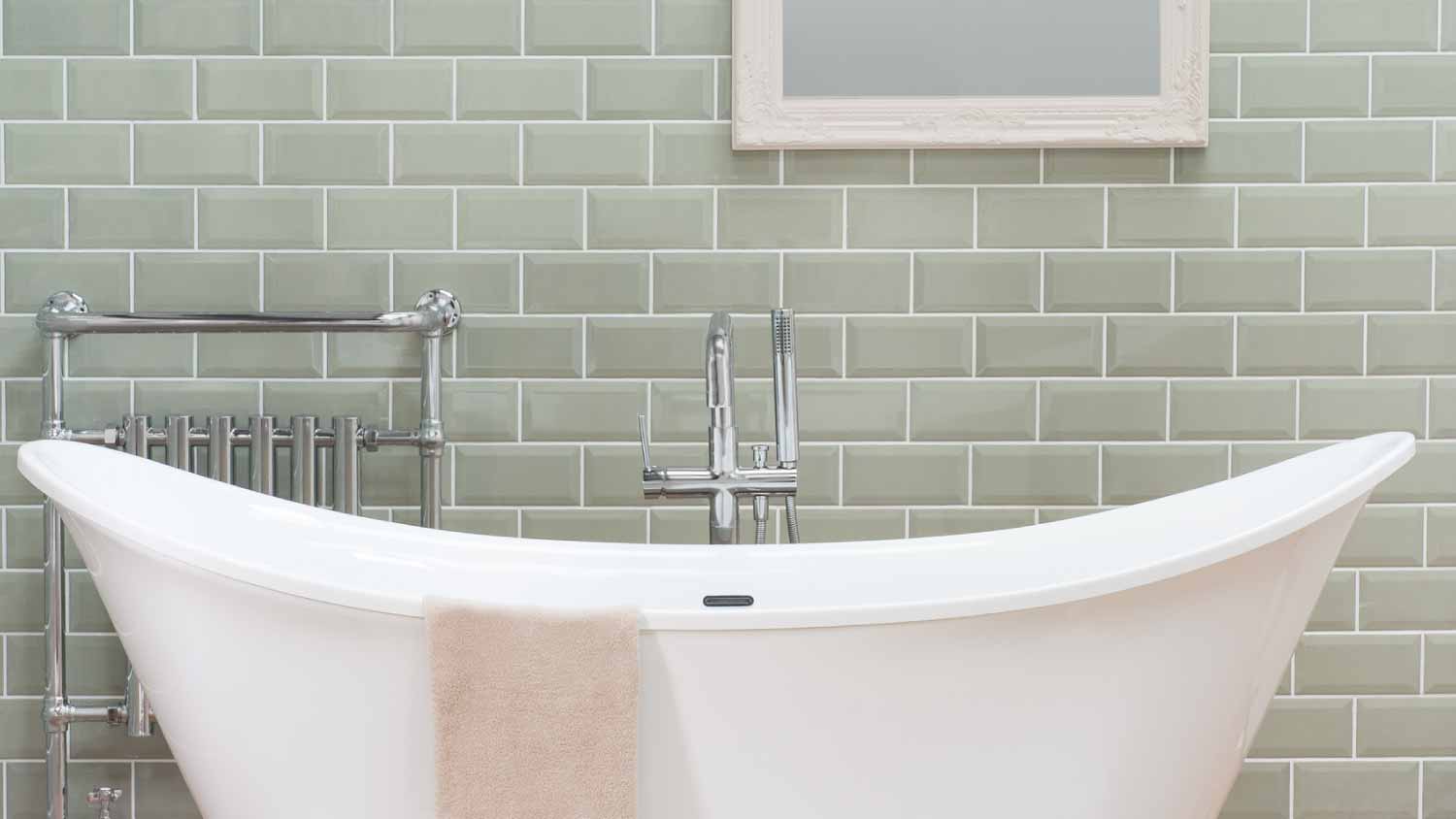
Remodeling your bathroom can add significant value to your home. Your bathroom remodel cost in Columbus, OH will depend on size, fixtures, materials, labor, and other factors.
A home addition costs an average of $51,672 in Orlando, Florida. Depending on the location, size, type, and materials, most homeowners spend between $26,939 and $79,314.


Building an addition on your Orlando home can add valuable square footage and increase your home’s value.
An addition offers an ROI of 20% to 40%, depending on the size and type of addition and the quality of the build and materials.
Hire a qualified Orlando homebuilder or general contractor to ensure your home addition project has the best results.
You’ll need to get a permit from the City of Orlando’s Building and Development Office to complete a home addition.
If your Orlando home is feeling a little cramped but you’re not ready to move, building a home addition can add necessary square footage to your existing home. The cost of a home addition in Orlando averages around $51,672, and most homeowners pay between $26,939 and $79,314. We break down some of the common factors that affect how much you’ll pay for a home addition in Orlando.
The cost to build a home addition in Orlando, FL, is affected by a wide range of factors, including addition size and type, materials used, site prep costs, and more. Whether you’re financing your home addition or paying for it outright, knowing what affects the cost can help you budget accurately for this major project.
Home additions cost between $80 and $200 per square foot if you’re building out and between $300 and $500 per square foot if you’re building up. The cost to add a 10x10 room to a house costs an average of $12,500 if you build out and $40,000 if you build up. Size can also affect how long an addition takes to build, which can cause cost factors like labor costs to increase.
Remember that if you add square footage to your home, the cost of your homeowners insurance will increase accordingly. Before you embark on this project, speak to your insurance company about expected costs.
Where in those ranges your total falls also depends on the complexity of the room and its finishes. For example, adding a bathroom will often cost more than a bedroom since it requires additional plumbing and electrical work.
| Project Size (Sq. Ft.) | Bump-Out Build | Second Story Build |
|---|---|---|
| 60 | $4,800–$12,000 | $18,000–$30,000 |
| 80 | $6,400–$16,000 | $24,000–$40,000 |
| 100 | $8,000–$20,000 | $30,000–$50,000 |
| 150 | $12,000–$30,000 | $45,000–$75,000 |
| 200 | $16,000–$40,000 | $60,000–$100,000 |
| 300 | $24,000–$60,000 | $90,000–$150,000 |
| 400 | $32,000–$80,000 | $120,000–$200,000 |
As you can imagine, it takes many kinds of building materials to complete a custom home addition. Material prices vary widely, so your price could push closer to $79,314 if you choose luxury or high-end materials at each step of the way.
Framing Materials Cost:
| Framing Material | Average Cost per Sq. Ft. | Pros | Cons |
|---|---|---|---|
| Wood | $1–$5 | Cost-effective, easy to install | Fire risk, prone to pests and moisture problems |
| Steel | $2–$4 | Durable, fire-resistant | Complex installation, limits roof design |
Insulation Materials Cost:
| Insulation Material | Average Cost per Sq. Ft. | Pros | Cons |
|---|---|---|---|
| Blown-in | $0.50–$2.30 | Low-cost, fast installation | Prone to water damage, less durable |
| Fiberglass | $0.30–$1.50 | Fire-resistant, cost-effective | Lower R-value, easily damaged |
| Spray foam | $1.50–$4.90 | High R-value, resists pests and moisture | Higher cost, more flammable |
| Rockwool | $1.10–$3.10 | Durable, high R-value | Loose fibers can be a health risk, higher cost |
Roofing Materials Cost:
| Roofing Material | Average Cost per Sq. Ft. | Pros | Cons |
|---|---|---|---|
| Asphalt shingles | $1–$1.20 | Affordable, easy to install | Prone to granule loss, shorter lifespan |
| Metal | $5–$16 | Long lifespan, low-maintenance | Higher cost, difficult to repair |
| Slate | $10–$30 | Longest lifespan, high-end aesthetics | Very heavy, difficult to install/repair |
| Synthetic | $5–$12 | Durable, lightweight | Variable quality, may look engineered |
Flooring Materials Cost:
| Flooring Material | Average Cost per Sq. Ft. | Pros | Cons |
|---|---|---|---|
| Hardwood | $6–$12 | Long-lasting, many available options | Higher cost, prone to dents and scratches |
| Laminate | $1.30–$6 | Budget-friendly, easy to install | Difficult to repair, prone to water damage |
| Tile | $5–$40 | Variety of options, easy to clean | More expensive, complex installation |
| Carpet | $3.50–$11 | Retains warmth, soft to walk on | Difficult to keep clean absorbs odors |
Siding Materials Cost
| Siding Material | Average Cost per Sq. Ft. | Pros | Cons |
|---|---|---|---|
| Vinyl | $3–$12 | Budget-friendly, easy to install | Shorter lifespan, prone to impact damage |
| Fiber cement | $5–$14 | Extremely durable, long lifespan | Higher cost, difficult to repair |
| Wood | $2–$6 | Eco-friendly, wide range of styles | Prone to rot and pest damage, high-maintenance |

The cost to add on a room varies based on the type and size of the room you’re building. Rooms like kitchens and bathrooms require plumbing work that a bedroom doesn’t, while an unfinished attic home addition may not require electrical or HVAC work that a bedroom needs. The cost per square foot for your home addition will vary based on utilities and the finishes required for how you plan on using the extra square footage.
| Addition Type | Average Cost Range |
|---|---|
| Attic | $40,000–$46,000 |
| Bathroom | $35,000–$40,250 |
| Bedroom | $62,500–$71,875 |
| Dining room | $30,000–$34,500 |
| Kitchen | $55,000–$63,250 |
| Laundry room | $8,000–$9,200 |
| Living room | $30,000–$34,500 |
| Mudroom | $12,000–$13,800 |
| Sunroom | $47,000–$54000 |
| Detached garage | $26,400–$30,400 |
| In-law suite | $82,750–$95,200 |
| Second story | $175,000–$201,000 |
On average, site prep for a home addition costs between $1,500 and $5,000. You may not need any site prep in some cases if you’re building up onto another story rather than out at ground level, while other home addition projects may require grading land, demolishing concrete patios, removing trees, and other work that can add to your total.
You’ll need a permit from the City of Orlando’s Building and Development Office before beginning construction on your home addition. Permit fees depend on the size, scope, and cost of the project, so confirm with your contractor or the city that you’ve paid all necessary fees and obtained the applicable permits before work begins.
Unpermitted work can lead to fines, citations, and even the removal of the completed work, so it’s important to ensure you have everything you need to proceed legally with construction.
Hiring a general contractor or homebuilder in Orlando, FL, will cost around 10% to 20% of the total project cost. Labor costs overall will account for roughly 40% to 60% of the total project price, depending on what kinds of pros you need to hire. An experienced and qualified general contractor will manage your home addition construction project, coordinate with subcontractors, answer your home addition questions, and ensure your project complies with all local codes and regulations.
A home addition may require various professionals in order to complete the project. You may need to bring in a structural engineer or architect for your home addition to ensure the build is structurally sound and up to code. You may need to hire an electrician, plumber, and HVAC tech to run utilities for the new addition, and painters, landscapers, or flooring pros for the finishing details.
Interior painter cost: $2–$6 per sq. ft.
Roofer cost: $4–$11 per sq. ft.
Electrician cost: $50–$100 per hour
HVAC technician cost: $100–$250 per hour
Plumber cost: $45–$200 per hour
Carpenter cost: $75–$125 per hour
Structural engineer cost: $200–$1,500
Landscaper cost: $1,200–$6,200
A home addition can provide a return on investment (ROI) of 20% to 50%, based on the type of addition and the quality of the build. In Orlando, the average home size is around 1,800 square feet, compared to a national average of around 2,200 square feet. Adding valuable square footage to your Orlando home by expanding out or building up onto another story can add value to your home and make it more appealing to prospective homebuyers.
Home is the most important place on earth, which is why Angi has helped more than 150 million homeowners transform their houses into homes they adore. To help homeowners with their next project, Angi provides readers with the most accurate cost data and upholds strict editorial standards. We survey real Angi customers about their project costs to develop the pricing data you see, so you can make the best decisions for you and your home. We pair this data with research from reputable sources, including the U.S. Bureau of Labor Statistics, academic journals, market studies, and interviews with industry experts—all to ensure our prices reflect real-world projects.
Want to help us improve our cost data? Send us a recent project quote to [email protected]. Quotes and personal information will not be shared publicly.
From average costs to expert advice, get all the answers you need to get your job done.

Remodeling your bathroom can add significant value to your home. Your bathroom remodel cost in Columbus, OH will depend on size, fixtures, materials, labor, and other factors.

The cost to add a half bathroom varies based on geography and your choice of additions. Read on to discover just what factors into your total project cost.

Whether you’re looking to hire a pro or DIY, the cost of a kitchen design can add up quickly. Learn the cost factors involved in designing your kitchen.

An updated bathtub can give a bathroom a whole new look. Find out how much it costs to replace a bathtub in Columbus, OH, including prices by type and labor costs.

An updated bathtub can give a bathroom a whole new look. Find out how much it costs to replace a bathtub in Dallas, TX, including prices by type and labor costs.

An updated bathtub can give a bathroom a whole new look. Find out how much it costs to replace a bathtub in Phoenix, AZ, including prices by type and labor costs.